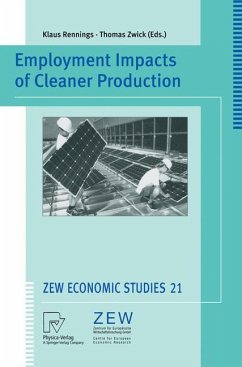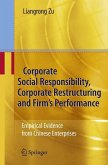This book covers a highly relevant but clearly under-researched topic - the impact of environmental innovations on employment on the fmn level. While the impact of innovations on employment has been analysed empirically in several studies, only few studies have specifically analysed innovations which are environmentally beneficial. In this book, we present case studies and an in-depth analysis of the behaviour of more than 1,500 fmns that have recently introduced environmental innovations in five European countries (Germany, United King dom, Italy, the Netherlands, Switzerland). The data stem from identical telephone interviews carried out simultaneously in these countries. The interviews were especially designed for analysing the relationship between environmental innova tion and employment on the firm-level. On the basis of an econometric model we find which factors lead to positive and which factors lead to negative employment effects in the wake of environmental innovations. Product and service innovations create more jobs in contrast to process innova tions. Employment changes only occur in the wake of major innovations. When innovations are mainly motivated by environmental concerns, they tend not to have employment effects. Eco-innovations aiming at cost reduction reduce employment. If the innovation is motivated by market share considerations, employment may change in both directions. We detect skill biased technological change of eco innovations, because the share of highly qualified employees has a positive impact on employment increases, while it is insignificant for employment decreases.








